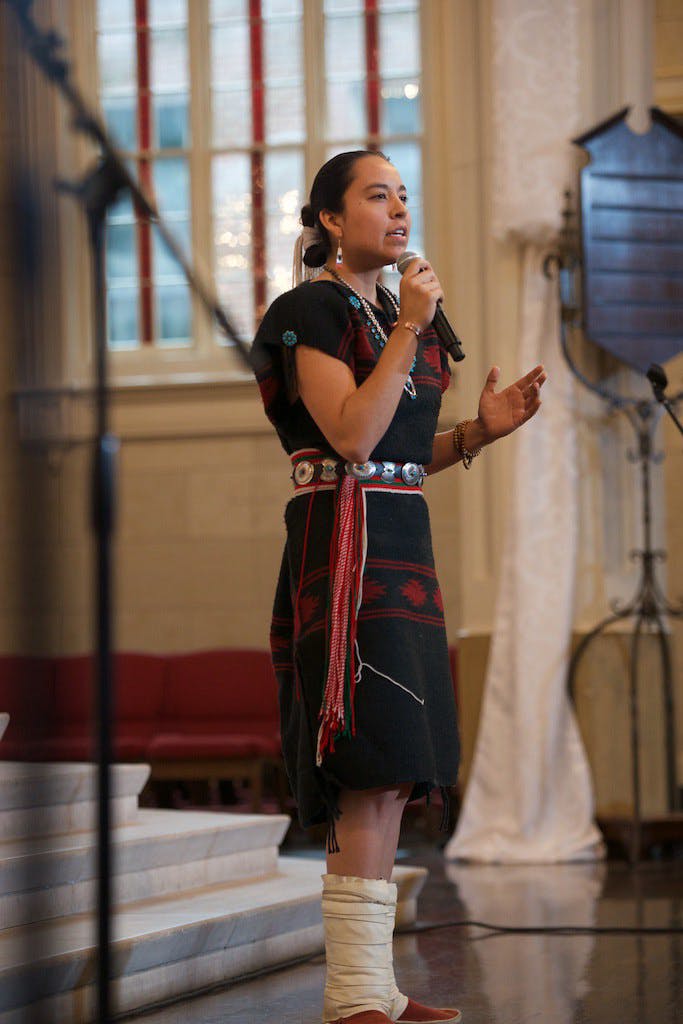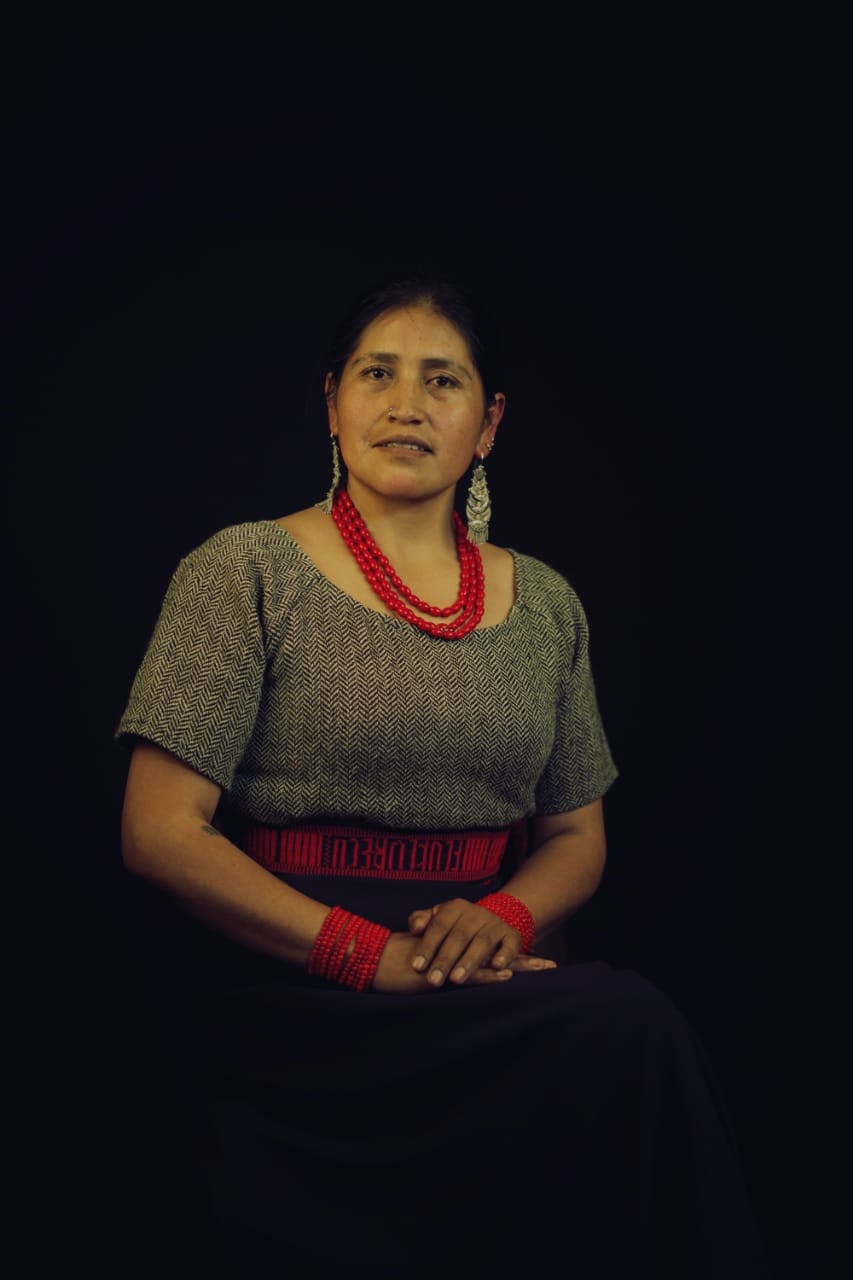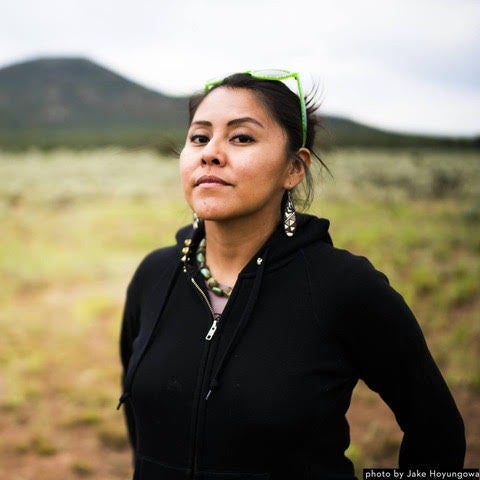An online presentation about “Indigenous Perspectives on Environmental Justice” will be shared in the new Environmental Justice class in the UCLA Department of Education,on Tuesday, December 1, 9-10:50 a.m., PST. The presenters are well-known Indigenous artists and activists Lyla June Johnston, Leona Morgan, and Janene Yazzie, of the Navajo (Diné) Nation, and Sarawi Andrango, from the Kayamby pueblo in Ecuador. This event is free and open to the public; however, registration in advance is required at this link. A Spanish language translation will be available during the presentation.

UCLA lecturer Jeff Share, who runs the class and co-authored, “The Critical Media Literacy Guide: Engaging Media and Transforming Education” with UCLA Distinguished Professor of Education Douglas Kellner, says that the Indigenous perspective on the environment is, “… an important voice that has been missing from the dominant public discourse.”
“Indigenous activists have been at the forefront in the struggle for environmental justice all around the globe and they are the ones being killed in many parts of the world, fighting for environmental issues,” Share says. “We need to build awareness about the people who are on the front lines, who’ve been doing this work for a long time. Indigenous worldviews are more holistic, sustainable, and respectful of the environment.”
Andrango is a poet and environmental activist from South America. She is a member of the Kayamby pueblo in Ecuador. While her first language is Kichwa, she will be speaking in Spanish and her words will be translated into English.
Johnston is a contributor to the Center for Humans & Nature and a co-founder of The Taos Peace and Reconciliation Council which works to heal intergenerational trauma and ethnic division in northern New Mexico. She is a walker within the Nihigaal Bee Iiná Movement, a 1,000-mile prayer walk through Diné Tah (the Navajo homeland) that is exposing the exploitation of Diné land and people by uranium, coal, oil and gas industries, and the lead organizer of the Black Hill Unity Concert which gathers native and nonnative musicians to pray for the return of guardianship of the Black Hills to the Lakota, Nakota, and Dakota nations. June is the also the founder of Regeneration Festival, an annual celebration of children that occurs in 13 countries around the world every September.
Morgan is an Indigenous community organizer and activist who has been fighting nuclear colonialism since 2007. Her work includes stopping: new uranium mining, transport of radioactive materials, and nuclear waste dumping in the Southwestern United States. Morgan co-founded and works with the Nuclear Issues Study Group and Diné No Nukes, which contributes to the Haul No! initiative and Radiation Monitoring Project. She collaborates nationally with many groups to address the entire nuclear fuel chain in the U.S. and is part of the international campaign Don’t Nuke the Climate that focuses on nuclear energy as a global climate issue.

Yazzie is a member of the advisory Board of Land Rights Now and co-founder and CEO of Sixth World Solutions which works with Diné communities to develop projects, programs and policies that promote sustainability, environmental justice, and self-governance. Yazzie also co-founded the first Navajo Nation community-led watershed planning program for local control in the sustainable management, restoration, and protection of natural resources through youth engagement and community capacity building. Her work has earned international recognition including serving as North American focal point to the UN High-Level Political Forum on the 2030 Sustainable Development Goals.
“As students who are learning more about environmental and climate justice, it is critical to center Indigenous peoples’ histories, perspectives, knowledge, and experiences in our studies,” says Mandie Torres, a member of the class and peer advisor for Xinachtli at UCLA. “Indigenous peoples have been caring for and fighting to protect Mother Earth for millennia. This event is important because when we don’t put the land’s original caretakers at the forefront of these conversations, we are perpetuating those same oppressive agendas that we claim to be fighting against.”
For a PDF of the event flyer, click here.
Courtesy of Leona Morgan
